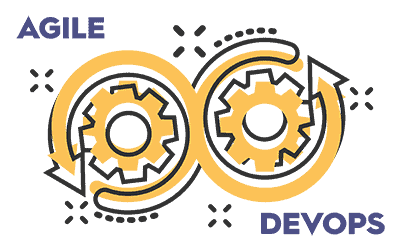If you are interested in moving into or progressing your DevOps career, the odds are you will need success at a job interview. Just because it’s a DevOps interview, doesn’t stop all the usual interview rules applying, things like:
Table of Contents
Toggle- Do your research
- Know what the job actually is (you’d be amazed at how many candidates don’t!).
- Find out – and demonstrate you have found out – about the company, their culture, vision, etc.
- If possible, find out something about the interviewers, their preferences, attitudes, history, etc.
- Look the part – whatever that part is (DevOps won’t be suit and tie!).
- Look keen, be on time, all the everyday stuff.

But, having mastered interview basics, there is some specifically DevOps kind of things worth considering and thinking about before you get to the interview. We’ve thought about it and suggest ten questions you might get asked, ranging from the generic to some very specific ones. There is no guarantee you’ll get these in your interview, but they are representative of the kind of question asked of DevOps interview candidates.
10 DevOps Interview Questions

Valid questions for a DevOps role cover both general stuff about DevOps and specific questions about practices, tools, techniques, and supporting frameworks. Expect both, probably mixed up a bit.
It’s an interview for a DevOps role, so the interviewers will want to be assured that you know what DevOps: an obvious opening question is.
1. What Exactly is DevOps?
This is a more challenging question than it might seem at first sight. Since there isn’t a single agreed definition of DevOps, this should illustrate your view of what really matters. Even if the role being interviewed for is a technical one, focused on coding or testing say, you need to demonstrate a commitment to basic DevOps attitudes. Remember that DevOps is primarily about culture and breaking down work silos. A good answer will emphasize belief in shared goals, collaboration, and delivery of business benefits. Don’t forget the business benefits angle – company owners and senior managers are looking to DevOps for improvements to their bottom line, not just spreading fun and happiness.
Looking a bit deeper into how organizations make DevOps work, expect questions on the supporting frameworks.
2. Why do Agile and DevOps go Together?

Most DevOps organizations use Agile, building their approach on Agile principles. Questions can be general – why does Agile fit with DevOps so well; What’s the difference between Agile and DevOps? Or they might be specific questions around the agile manifesto or even rules for meetings. A typical Agile question could even be the purpose and benefits of the daily stand-up meeting.
3. Does ITIL Have a Role in a DevOps World?
Always a popular question when the interview panel has someone form an Operations background. It can be a trap for the coding techie to fall into. Operations is an important part of DevOps (it’s the second half of the word after all) – and so the ITIL4 practices are important areas of knowledge and consideration for DevOps staff. DevOps Engineers might spend most of their time writing code in Python or Linux, but they must have that broad DevOps perception and see the role of IT Service Management (ITSM) practices.
As well as testing broad appreciation of what DevOps is for, most interviews will throw in a few targeted questions about some particular DevOps aspects, things like this.
4. Explain Continuous Integration, Continuous Delivery, Continuous Deployment

It should be easy enough if you’ve done your reading. If you’ve real hands-on experience of these, then be careful you don’t just talk about what you have done, try to take a broader perspective; the odds are that things will be slightly different in the new job.
5. Detail and Value of the Range of DevOps Concepts
There is a large spectrum of opportunity here. Shift left, containers and microservices, chatops, and all those other things you learned on your DevOps course. Easy for the interviewer to look through a DevOps course syllabus for question ideas.
6. Knowledge of and Experience of Specific Tools (DevOps Interview Question You Need to Nail)

A good line of questioning, and scope for a candidate to impress but also the option to reveal weaknesses or a belief in ‘one right way’ when a more open view is being sought. If you have good knowledge of the tools being used, then show that. If you don’t know the particular tools they use, don’t panic – knowing one tool well implies you can learn an alternative one also. Don’t pretend, show you would be happy and are capable of learning new things quickly.
7. How do you …?
Detailed coding questions about tools the candidate has declared knowledge of are common, not least because where the interviewer knows the tool or language, it is a very easy question for them to frame and to judge the correctness of any answer.
But DevOps is primarily about culture. The most important factor in recruiting DevOps staff is whether they will fit into the organization’s culture, and support the kind of empowered team working they either have or intend to develop. So, any decent set of DevOps interviewers will devote a significant part of the time to establishing how good a team player the candidate might be.
8. Are you Happy to be Judged only on the Overall Performance of the Team?

In a conventional employment environment, many candidates will be used to individual performance assessment. In an area where teams are empowered to own – design, change, deliver, support, etc. – applications, there might be only shared metrics. It’s a difficult question to answer – you are very much an individual in the interview, wanting to be selected over other applicants. Yet, if successful, you are expected to work with others and help them perform. Answers that show an understanding of good team performance are required. That experience doesn’t have to come only from IT – working with voluntary organizations, experience with mentoring (giving and receiving), and playing sports can all impress.
One more group of questions are the ‘why you’ ones .. typical wold be
9. Why do you Want to Work in DevOps? *Important DevOps Interview Question*
The classic ‘what in it for you?’ question … good candidates will not hide their ambition or intention to benefit. Seeing DevOps as the future and wanting to be part of it, believing that DevOps is a better working environment.
And finally, and very importantly, a good interview will end with the reversal.
10. What do you Want to ask us About our DevOps Environment?

This is a chance to demonstrate your preparedness and a sensible caution about doing the wrong things. How pure an approach to DevOps do they have, does senior management really get it, or are they following a fashion. Ask questions about team facilities, which tools are used, being considered, training and qualifications available, and so on. (I confess, I used to have a blank sheet of paper ready in my pocket at this stage, if needs be, I would pull it out, look carefully down it and say ‘No, I think you’ve already covered everything I’d wanted to ask.’)
Summary:
Your DevOps Interview
Do your research. Look the part – whatever that part is (DevOps won’t be suit and tie!). DevOps Interview Questions: 1. What Exactly is DevOps? 2. Why do Agile and DevOps go Together? 3. Does ITIL Have a Role in a DevOps World?. Read the article for a full list of 10 questions.





